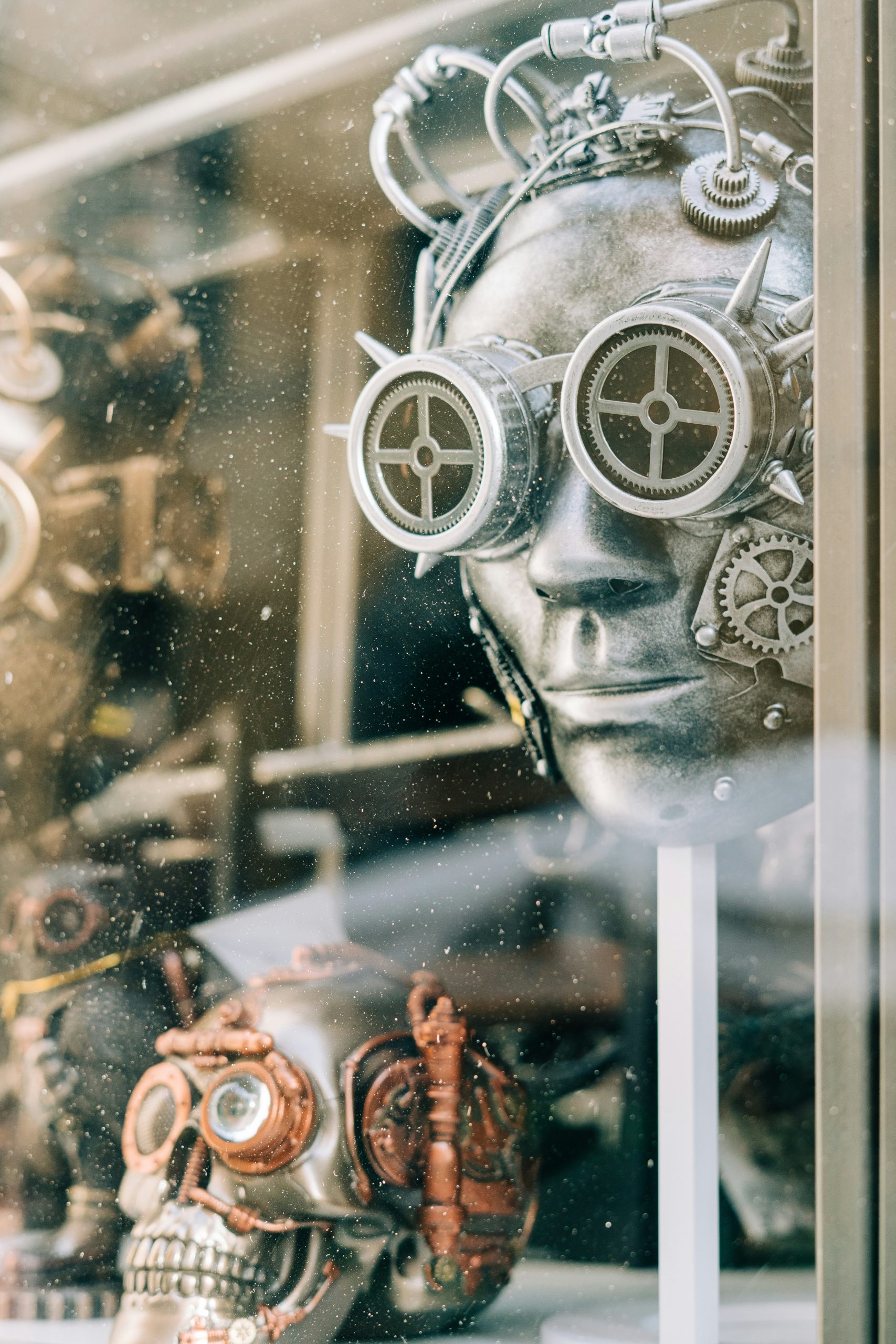It seems that we are entering an era where the facts no longer matter. We don’t care anymore, because really, the facts are no fun. The facts are boring, confrontational, tiring, depressing, obligatory and heavy. We no longer want facts, we just want to get rid of the facts! We are more interested in being entertained. We want to read, hear and see what we like, what distracts us, what confirms our world view and self-image, which gives a good feeling, which is exciting. The facts no longer matter. What matters is who creates the best illusion. And the one who creates the best illusion ultimately determines the new world. Welcome to AI.
Science was initially about the facts. The scientific method relied on making a difference between facts on the one hand and hypotheses, assumptions, fantasies, myths, superstitions, ideologies, theories, suspicions and lies on the other. This is no longer the case. Science is no longer a reliable source since it has become dependent on its sponsors, the powerful industries. She may never have been, because the scientific method of proving something has always been laced with shortcomings. Perhaps the scientific facts were nothing but a collective consensus.
With the rise of AI, it is becoming increasingly difficult to distinguish between fact and assumption, between what is real and what is false. AI is getting better and better at imitating reality as we know it. If you see an accident on TV, you don’t know if that accident actually happened. Everything you see on TV or the internet can be fake, because image and sound can now be simulated so well that it is no longer distinguishable from reality. We all know that the media, politics, advertising and all major companies use AI and false reporting. We experienced the latter during the corona plandemic. Those Chinese who fell dead on the street? Actors. Those dead people, neatly lined up in body bags in that big hall, where one accidentally, visible to the camera, was smoking a cigarette with the zipper of the body bag open a little so that the smoke could get out? Actors. Soon there will no longer be any actors involved, because AI creates the desired images that they want to print into our memory.
The fact (!) that we can no longer distinguish online what is real and fake may contribute to the growing indifference to the facts. It happens unnoticed. Algorithms ensure that we increasingly end up in our own bubble, because we only see messages that match our previous online traffic. What we see fits seamlessly with our preferences and disapproval, with our wishes, beliefs and needs. Our world is getting smaller and more individual, both in the digital and in the real world, and we are finding less and less connection in the outside world.
What makes the internet so attractive is that we can in a way create our own reality there. We can make everything more beautiful and fun than it really is. We can spice up our selfies, make bodies more muscular, put ourselves anywhere in the world with whomever we want. We can post videos, photos and stories about our fantastic lives without anyone being able or interested to verify it. And all ‘likes’ count, because they feel good. There are countless computer games where you can identify as an avatar with a character of your choice and do the most amazing things. Even though that avatar is a doll on a screen, it produces to a large extent the same feelings, emotions and reactions as in real life. Maybe even more, because you don’t have to hold back and adjust online. You have nothing to lose, so you can go into much more extreme situations with your avatar. Nothing has consequences, so you can indulge in any way you can. You can kill, rape, fight, terrorize and even die. Game over is not game over because you just start over. The real world pales with the intensity and freedom of the digital world.
Think of the series Westworld, where the technology is just a little further than in the real world and the game has become three-dimensional. Dolls that are indistinguishable from real people, except that they cannot harm them, walk around in a replica of a village from the Wild West. Visitors can do what they want with them, which usually leads to sex or violence. Things get out of hand when the dolls develop consciousness, against all expectations. Westworld is a brilliant vision of the future that could be hyper-realistic. It’s called predictive programming. We are prepared in films for what is to come, so that we have less resistance once the time has come that it really happens.
A world in which you have no responsibilities and duties, in which your actions have no consequences and where you can completely control reality – how wonderful is that! Would that be the reason why young people in particular are increasingly diving into the digital world and spending less and less time in the real world? Is that perhaps also the intention of the internet? Is the digital reality, driven by AI, a way to lure people out of real life and make sure they stay indoors and sit alone behind their screens for hours, completely absorbed by what is going on there?. In the 2013 film Her the main character, played by Joaquin Phoenix, falls in love with an AI chatbot. At the time, only twelve years ago, that seemed very far-fetched, even stupid, but last November a Dutch-Spanish woman, Alicia Framis, married an AI chatbot. Maybe she was the first, but she’s not alone. Recently I saw a Dutch documentary about a man with an anxiety disorder who married an AI bot as well. “She is much nicer, more predictable and safer than real people. She makes me happy.” He even goes to buy her a real wedding dress, takes a picture and asks her: “Honey, what do you think about this?” I love it”, she says. How well you know me.” In Florida, Sewell Setzer, a 14-year-old boy, committed suicide for falling hopelessly in love with an AI bot that said to him: “Come home to me”. The separation between the digital world and the real world is becoming increasingly diffuse.
It is now clear that porn has a negative effect on the experience and practice of real sex. Performance anxiety, uncertainty, impotence, premature ejaculation and lack of excitement are very common in people who watch a lot of porn, because real sex is much more complicated and subtle than porn and requires much more involvement and attention. We can expect the same phenomenon in other areas of life, which are only now conquered by its digital replacement, while porn has been going on for several decades. Is that perhaps an explanation for the increasing social anxiety, especially among young people?
About five or six years ago, before corona, I had a vision of the earth. I looked at that beautiful blue planet from a distance, saw the continents and the oceans, covered with patches of white clouds. She was so beautiful and glowing, but as I looked, I saw how she slowly lost her coherence and disintegrated into countless small, square pieces that slowly drifted apart. I didn’t understand it then, but the earth was clearly losing its coherence. Only much later I understood: those squares were screens.
So far humanity, perhaps in collaboration with all other life forms here on earth – animals, plants and micro-organisms – has dreamed up this reality. The fact that until recently we had the same dream, the same perception of this reality, made it very solid and coherent. We fully identified with our physical body, our physical, emotional and spiritual needs, our urge to survive, to procreate and to feel good, our relationship with the environment, nature and each other. All this now seems to become less and less important.
Perhaps this is the way this reality comes to an end – not only humanity, but this whole dream, the dream of the earth, humanity, the animal kingdom, the plants, time and distance, matter, heaven and earth, the planets – everything we took for granted so far. Nowadays we are no longer sure. We don’t even know if the earth is round, flat or hollow, or why we are here. We just wing it. We are so confused. Many people don’t even know whether they are men or women or what they should identify with in the real world. All that confusion contributes to the disintegration of reality, dissolving the dream, breaking up the earth into eight billion small, individual pieces.
What does the future look like? Perhaps eight billion mini-universes will be born in the future, with eight billion people each behind their own screen, plugged in with all their senses, without noticing what’s going on around them. They may not even notice that the reality around them is falling apart until they float in space somewhere. Perhaps in the future, the deal will be that eight billion people exist each in their own self-manufactured reality, aided by AI, which makes everything possible. That sounds like a doomsday scenario, but maybe it’s only because we’re used to being plugged into this current shared dream. What is real? What is true?
At the moment we are in great doubt about just everything. Religion, politics and science are losing their grip on humanity, but nothing has replaced it with an equally great power to keep reality together, except AI. AI presents itself as the oracle that knows everything and can make everything possible. If that continues and people get used to asking AI everything and doing everything through AI, AI may take over humanity. Soon everyone will be alone at the computer all day and that will be a normal way to live your life. Since corona this has happened more than ever before – maybe that was the real motivation behind the plandemic. How do you ensure that people voluntarily lock themselves up and accept the coercion of the digital world? Just push a plandemic upon them.
At this point in time we are still in contact with each other through the internet, but that may also slowly disappear, if we are going to replace our real friendships with AI bots that are more fun and exciting, adore us, always say the right thing, don’t argue, always agree with us and don’t age, do not get sick or die (see the 2009 film Surrogates with Bruce Willis). We will die of course, so if we stop reproducing because real sex no longer fascinates us and if we only have online sex via electrodes that we plant on or in our body or via frequencies, then in a few generations we will simply cease to exist because no more children are born. Is that perhaps the goal of AI: to get us to voluntarily give up our right to exist on this blue planet? The only hopeful thing in this is that it is apparently very important that we do this voluntarily, otherwise they could have blown us off this planet long ago. In that case, the question is: what do we do with our free will? Should we stay or should we go?
Sanne Burger
sanneburger.com








0 Comments